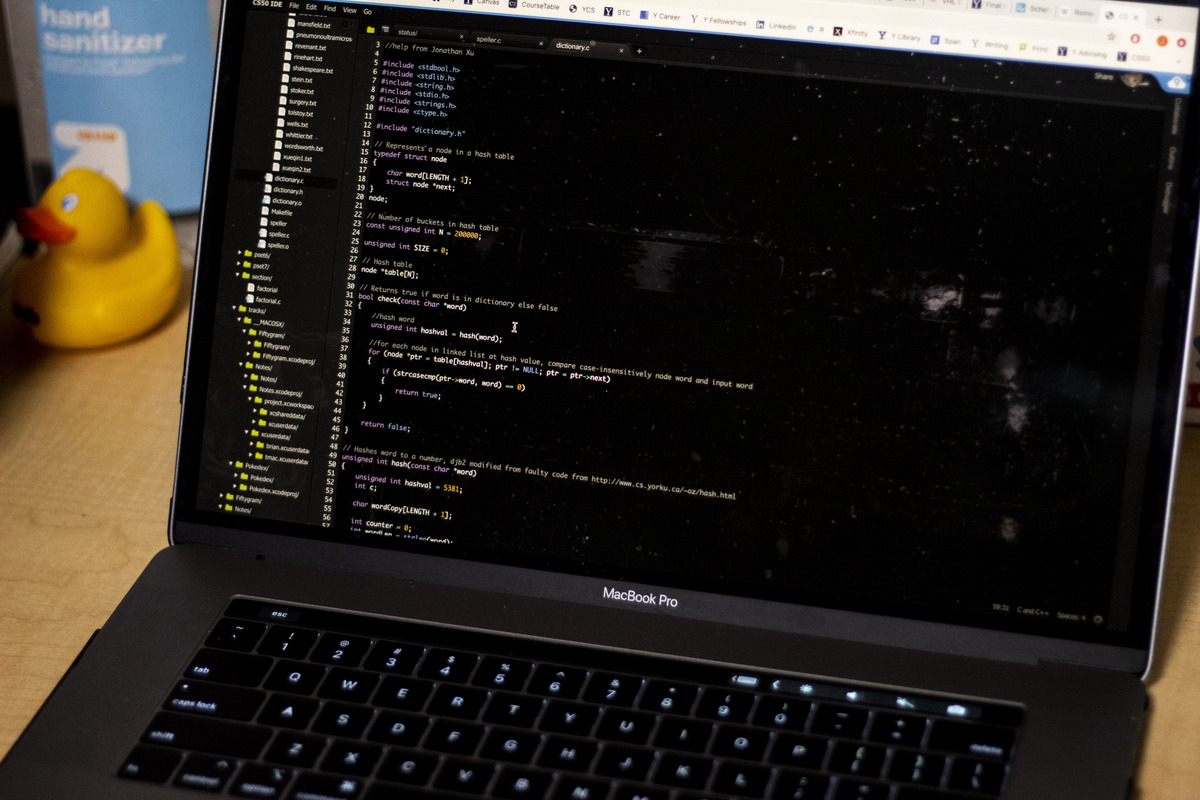CS50 bumps maximum ULA paycheck, avoiding potential strike
Administrators increased the number of possible hours undergraduate staff be paid for teaching the popular introductory computer science lecture.

Zoe Berg, Senior Photographer
Undergraduate staff for the University’s largest computer science course have won an increase to their maximum weekly pay after threatening a strike.
The change was made after over 30 undergraduate learning assistants for the introductory lecture CPSC 100 — more commonly known as CS50, after the original course taught by David Malan at Harvard College — penned an email on Sunday to course and department administrators explaining their grievances over a new payment system introduced at the beginning of the school year.
“The CS50 staff is requesting swift and decisive action on changing our pay system to establish proper compensation for the work we are doing, avoid additional staff losses to alternative work options, and preserve the passion of the CS50 workforce in the future,” the letter reads.
The letter gave administrators one week to respond. Inaction, the letter reads, would leave staff with “no choice but to take further action in the form of a work stoppage.”
The system introduced for the semester — implemented across all departments that employ ULAs — stipulated that ULAs would only be paid at a uniform weekly rate for a maximum of 7.5 hours, replacing the hourly rate used in previous years.
That maximum, the letter states, disincentivized ULAs from providing necessary support to students. According to the email, ULAs for CS50 were hired in the spring and were told at the time that they would be paid at an hourly rate. The new payment policy resulted in some staff stepping down in order to pursue other computer science jobs that they perceived to be less work for the same pay, the email reads.
This development comes against the backdrop of the University’s wider expansion plan in the engineering and science fields as well as computer science’s increasing popularity among the student body — a trend that the ULA letter contends was threatened by the payment cap.
In a response on Monday, Dean of Undergraduate Education Pamela Schirmeister wrote that the department would immediately increase the weekly cap on pay. The cap, she explained, was introduced to help undergraduate learning assistants balance between their jobs and coursework.
“As you continue your ULA duties, I urge you to be mindful of the potential conflict of interest and to spend less than 10 hours per week when possible, and certainly not more,” Schirmeister wrote.
Schirmeister explained in an email to the News that the choice to switch from weekly, hourly time sheets to the stipend system was made because of the unsustainable administrative burden on the departments that use many ULAs.
Head ULA Jessie Cheung ’25 said the head ULA staff anticipated that many ULAs would have quit in the coming weeks had payment policies remained the same.
“I think the [ULA] team is very excited that this was changed,” Cheung said. “It’s one of the biggest computer science classes at Yale… and it’s modeled after Harvard’s CS class, which is definitely their largest CS class. All of our work is very intense.”
CS50, which requires no prior programming experience, covers topics including abstraction, algorithms and data structures as well as programming languages such as C, Python and SQL. The course serves as an introduction to many other courses in the computer science curriculum and is commonly taken by both majors and non-majors.
Unlike other computer science classes at Yale, however, CS50 ULAs are required to hold a two-hour section as well as lead office hours and grade assignments. The lectures are streamed live from Harvard, and students are responsible for completing weekly quizzes and programming assignments.
At Yale, CS50 enrolls over 200 students per year, who have access to a team of about 40 undergraduate learning assistants.
“The course leans really heavily on the [ULAs],” said CS50 student David Bloom ’25. “They have an insane amount of office hours.”
Head ULA Harry Jain ’23 said that finding out about the fixed rate was “demoralizing” for many ULAs, who work nine to 10 hours each week.
Jain said that much of the initial frustration arose because staff members were forced to spend time managing and limiting their hours rather than helping students.
“I think we all had hope and faith that it would work out,” Jain said. “It was a slow realization that action was needed on our part.”
CS50: Introduction to Computing and Programming was first introduced at Harvard in 2007.







